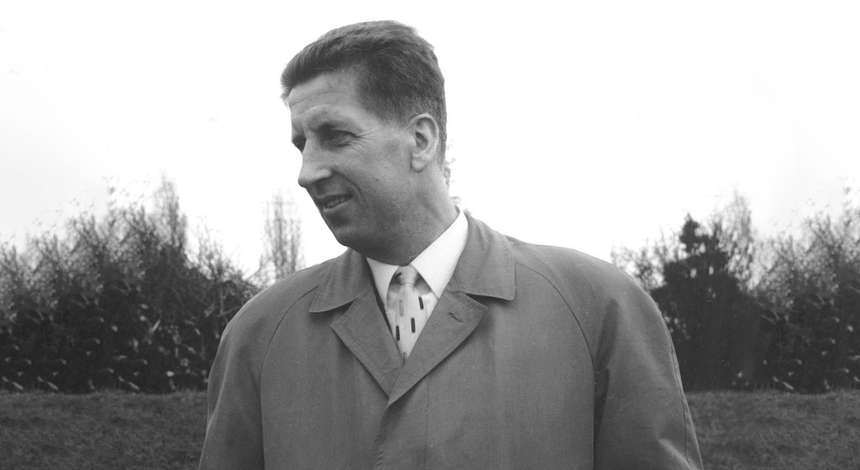
After a few weeks he decided to cross over the river Dhünn to the Stadtpark where he joined the youth set-up at Bayer 04 Leverkusen. He made his first appearance for the senior team at the age of 18 and he was a key player straightaway. The 'Lange’ (tall one), as he was known for his height of over six foot, was a defender solid in challenges and good in the air. His other strengths were his calm and fairness.
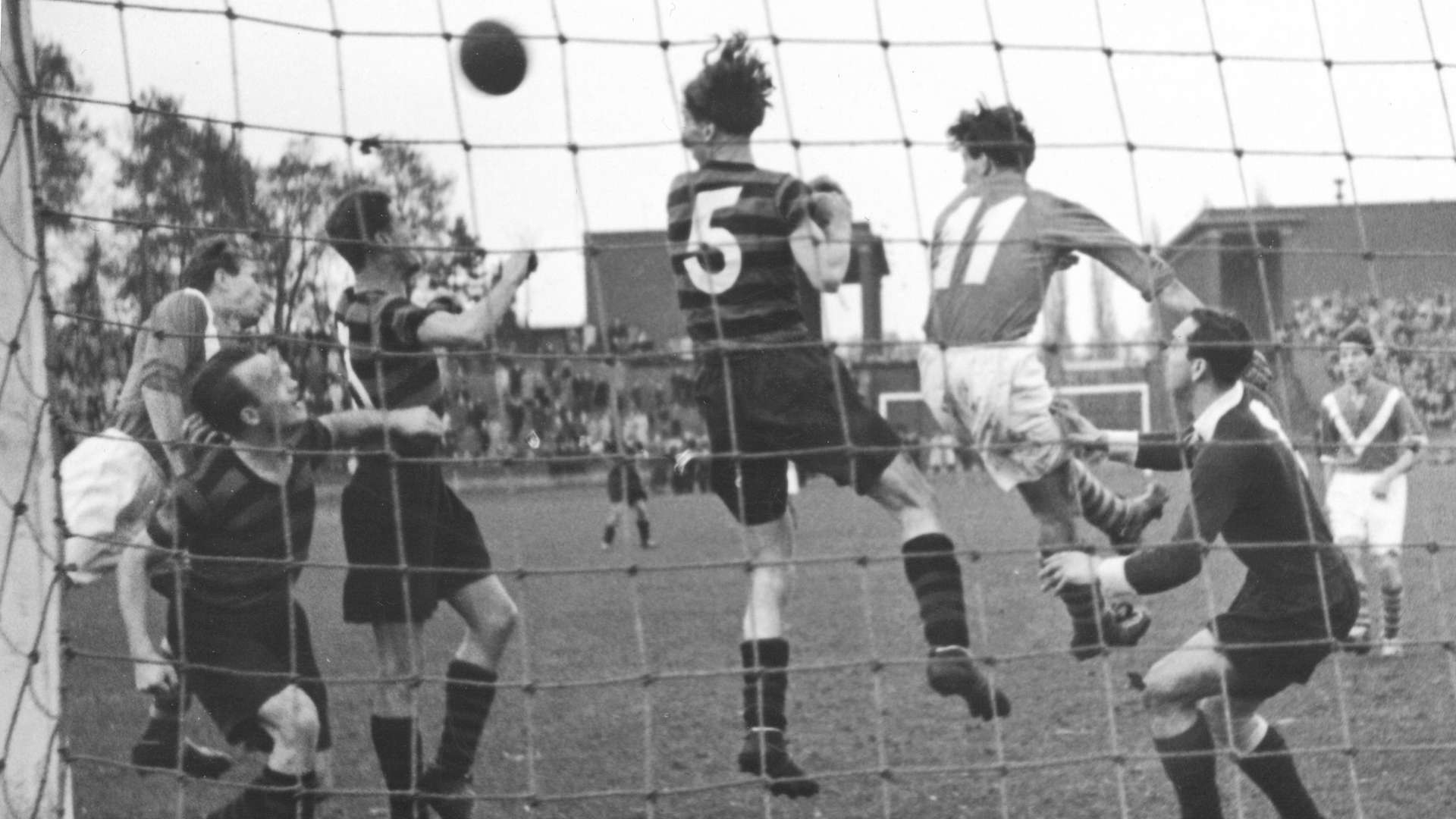

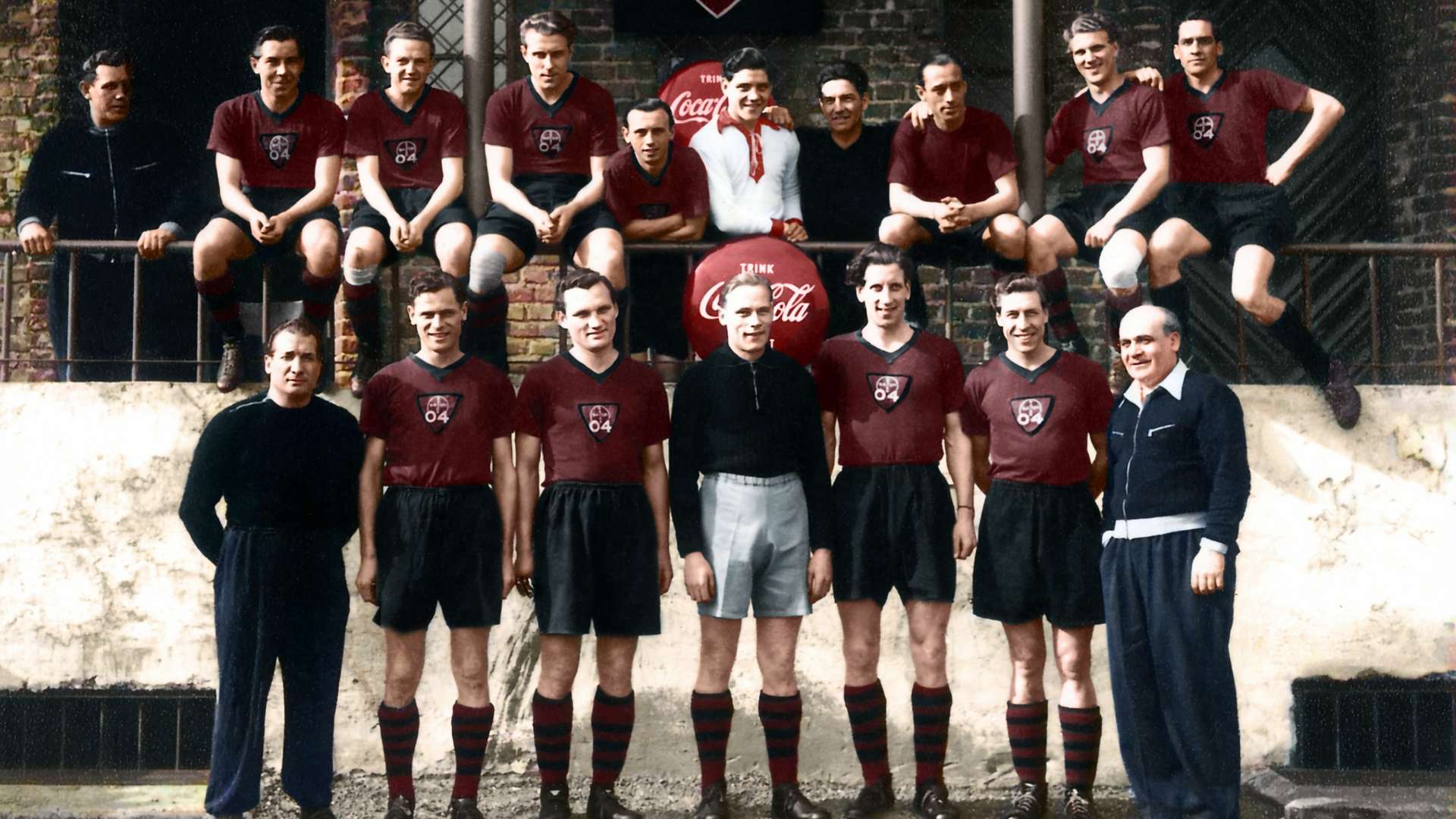
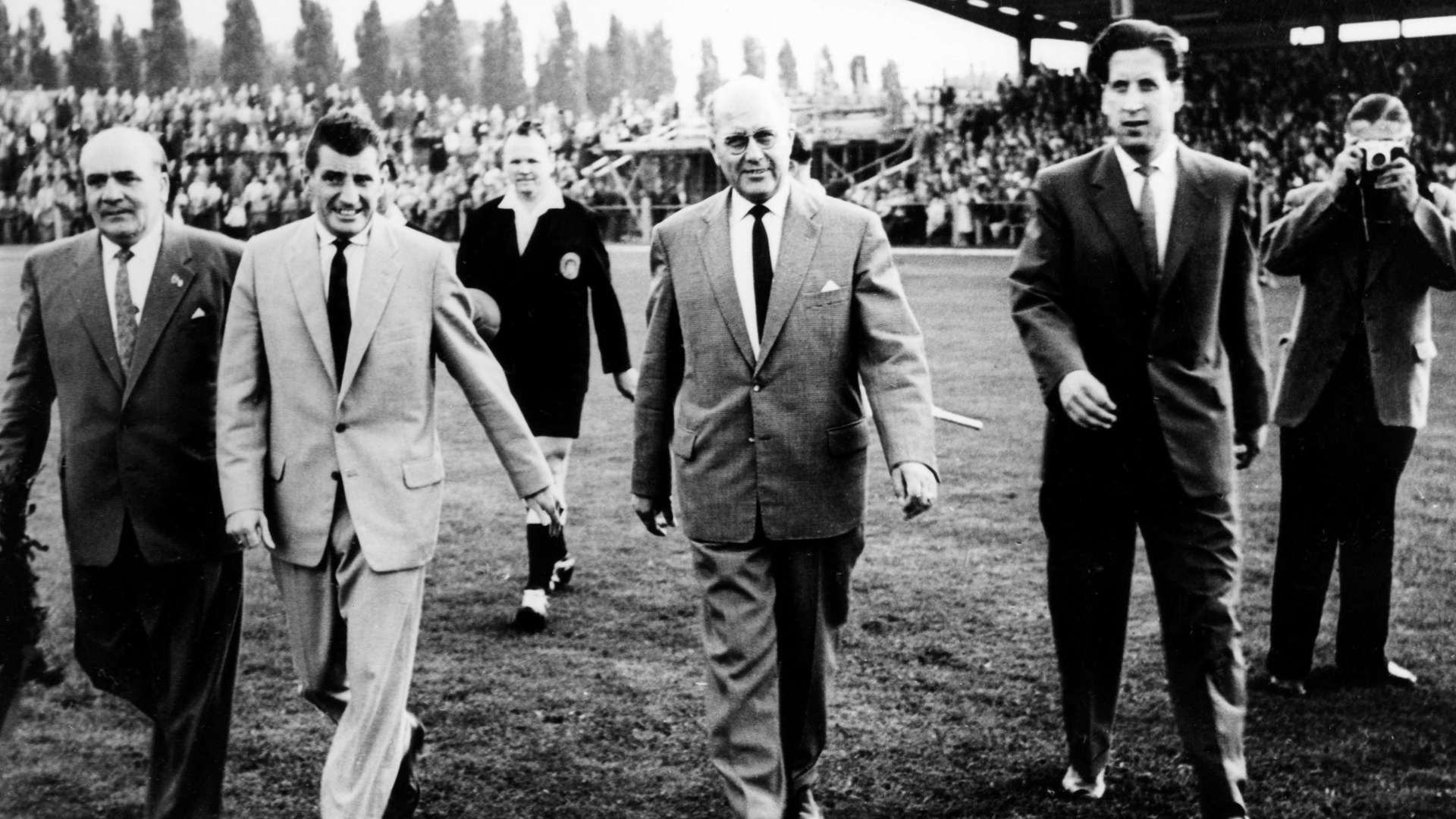
After the Second World War, he played in the first game and in the following years be became a reliable key player at Bayer 04. He wore the claret shirt of Bayer 04 over 500 times from 1945 to 1956. He wins promotion to the First Oberliga West with the Werkself in 1951, while working in the company health insurance fund at Bayer AG, and he ends his playing career at the age of 34 after a lot of knee injuries. But that's not the end of his connection with football. He gains a lot of merit as a long-standing board member of our club. He is the football chairman in 1960 – comparable to a sporting director today – and he played a significant part in building the team of the early 1960s. After internal disputes, he and his deputy Fredy Mutz, a long-standing goalkeeper in the 1950s, are voted off at the AGM. Five years later on 2 February 1969, he takes up the post again for another two years.
From 1971 he is a spectator at the stadium and training sessions and he accompanies the Bayer 04 first team to away games with his former teammates from the 1950s, particularly the European matches. Peter Berger passed away on 24 September 1999 at the age of 77 and a good part of the football history of Bayer 04 went with him. The 'Lange' would have been 100 years old on 8 August. A good reason to remember him.
Related News
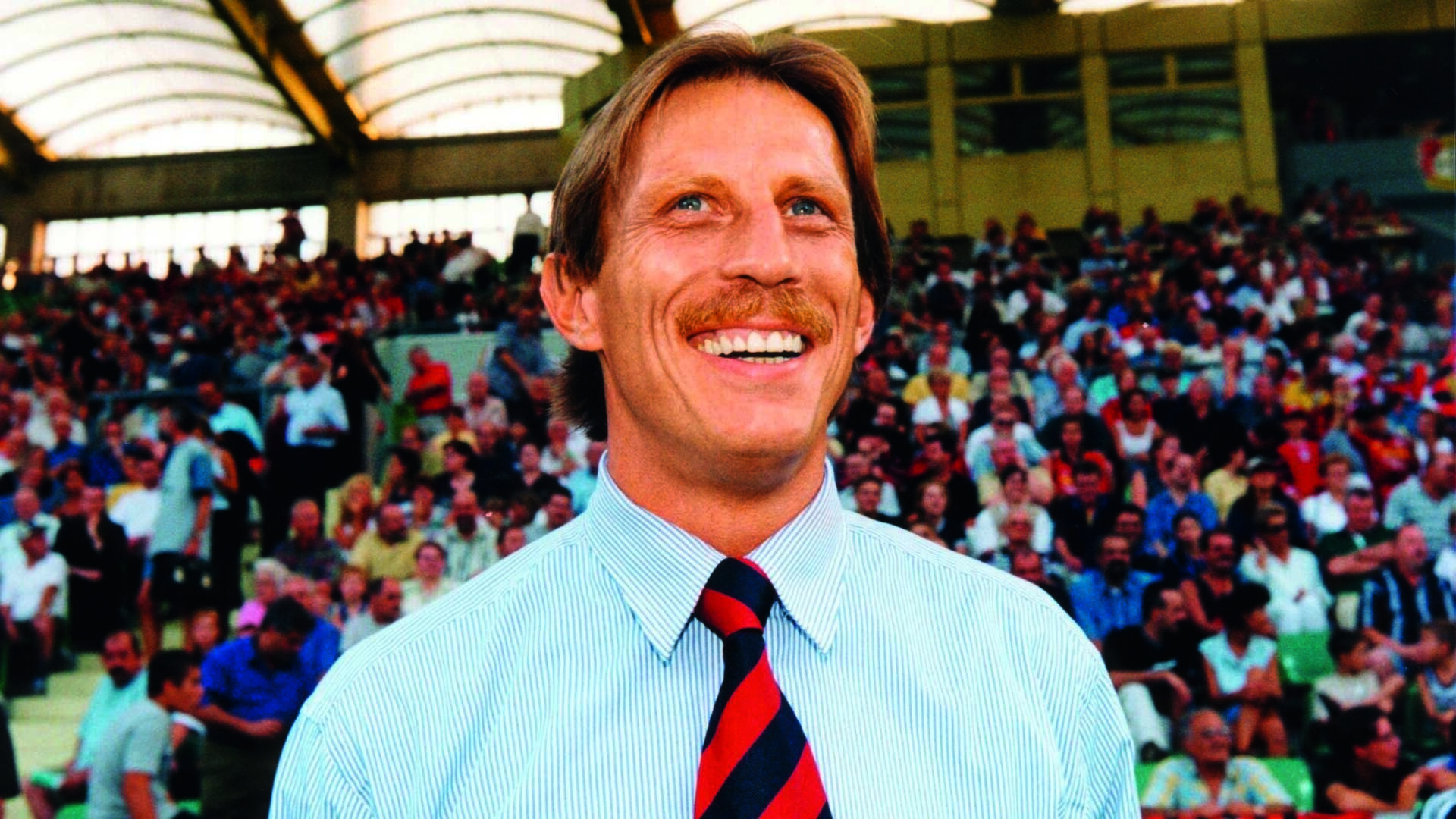
Legend: Christoph Daum - The man who taught us to want
Christoph Daum was born on 24 October 1953 in Zwickau. As a child, he moved to West Germany with his mother and grew up in Duisburg. He developed a great enthusiasm for football at an early age, even though it soon became clear that his future lay less on the pitch than on the sidelines. Even at a young age, his passion for analysing, explaining and improving things became apparent.
Show more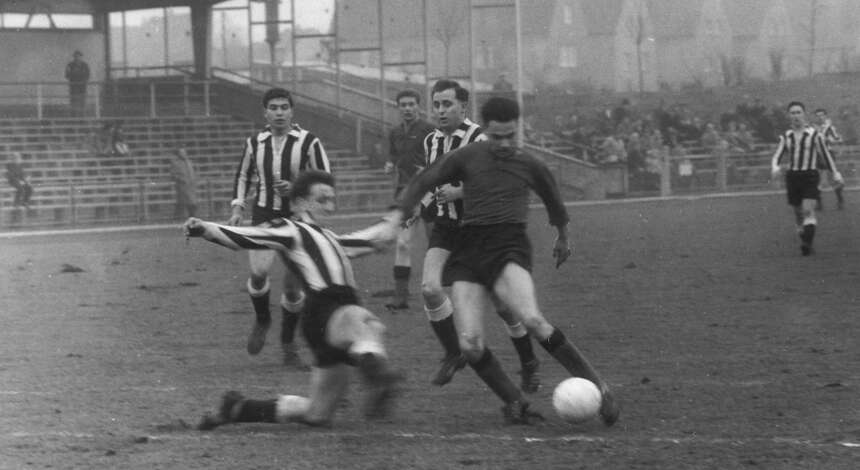
From the archives: 65 years ago - Another victory at last
When the Bayer 04 players celebrated Christmas in 1960, they spent the winter in second place in the Oberliga West 2 on 20 points - but already five points behind leaders Schwarz-Weiß Essen. However, coach Erich Garske's team are struggling to get back on track in the new year. A goalless draw against Bonner FV at home at the Ulrich Haberland Stadium was followed by a 2-1 away defeat in Erkenschwick. The following home game also yielded just one point. As a result, the team's promotion ambitions dwindled to a minimum, as the gap to the coveted spot has now grown to a challenging ten points.
Show more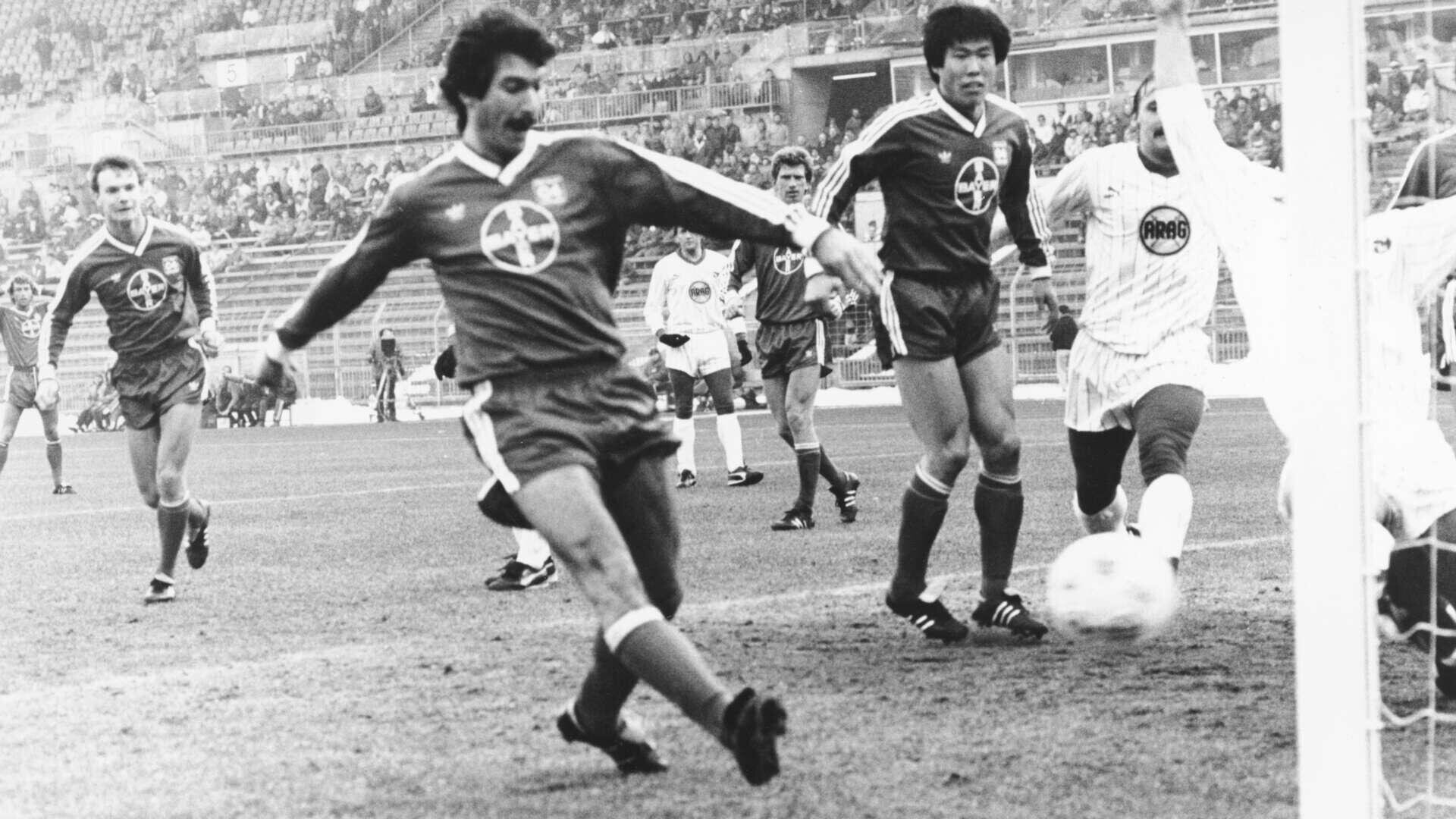
Goals of the month: From Waas to Tapsoba
In this video you can see impressive and important goals in Bayer 04 history from the month of February. It's not always about the beauty of the goals, but also a reminder of special games and players.
Show more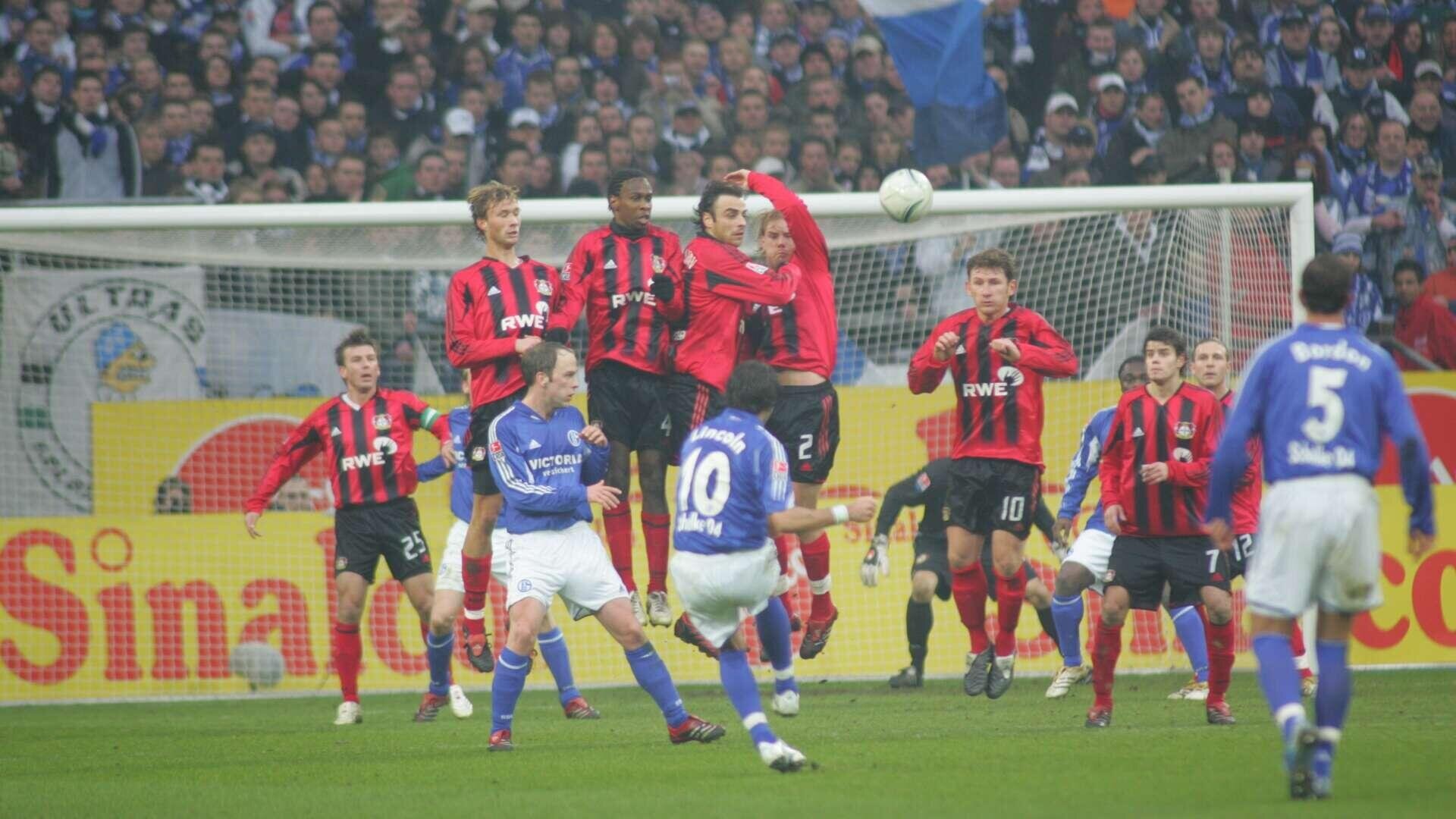
Match of the month: 20 years ago - A game of goals galore
It is 11 February 2006 and Schalke 04 and the Werkself kick off at 3.30 p.m. in a match that ends up being historic - at least from a Bayer 04 perspective.
Show more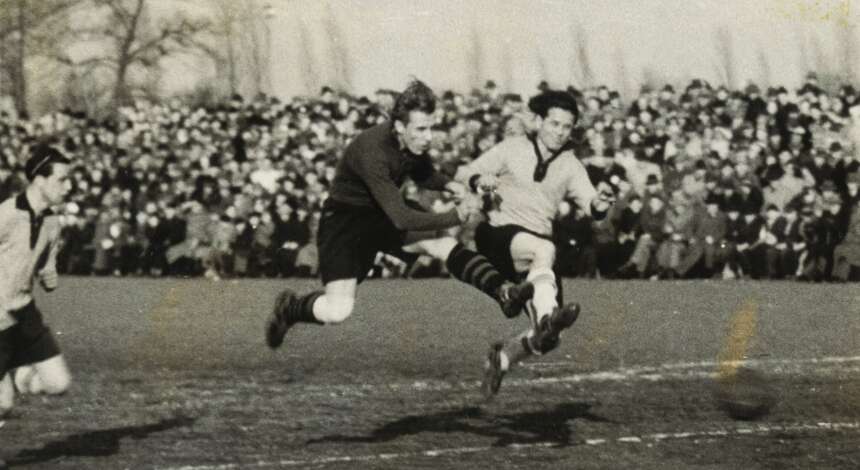
History: 75 years ago - The 1950/51 season (February)
As league leaders, the Werkself welcomed the relegation-threatened team from Rhenania Würselen. On 4 February 1951, 5,000 spectators line the touchlines despite the Sunday carnival parades. And they see a home team that is superior on the pitch. Without Theo Kirchberg, who was ill, and Emil Becks, who was suspended, the hosts attacked the opposing goal from the start. Battling against a strong wind in the first half, Bayer 04 created chance after chance, but were repeatedly thwarted by the Würselen goalkeeper. With the score at 0-0 at half-time, Karl Heinz Spikofski tried his luck on 55 minutes and hammered the ball into the opposition net from 20 metres out. Rhenania can no longer counterattack. The siege of the Würselen penalty area continued right to the end, but the game ended in a narrow 1-0 win.
Show more